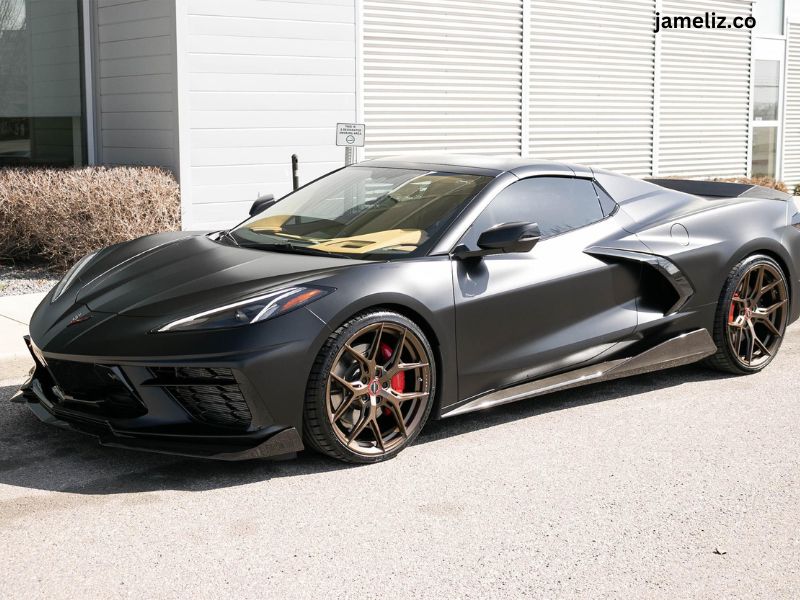Car wrapping has become an increasingly popular choice for vehicle customization and protection. Whether you’re looking to promote your business, change the color of your car, or simply protect the paint, wrapping can be an effective solution. However, one of the most common questions people have is, “How much does it cost to wrap a car?” In this article, we’ll explore the factors that affect the cost, average price ranges, and the pros and cons of car wrapping.
Understanding Car Wrapping
What is Car Wrapping?
Car wrapping involves applying a vinyl film over the vehicle’s exterior. This film can come in a variety of colors, finishes, and designs, including matte, gloss, and even textured options. Unlike a traditional paint job, wrapping allows for easy removal and often results in less damage to the original paint, making it a popular choice for many car owners.
Types of Wraps
- Full Wraps: Covering the entire vehicle, these wraps provide a complete color change or advertising space.
- Partial Wraps: Covering only a portion of the vehicle, often used for branding or accenting specific areas.
- Graphics and Decals: These can be added to any surface for customization without a full wrap.
Factors Affecting the Cost of Car Wrapping
The cost of wrapping a car can vary widely based on several key factors:
1. Vehicle Size and Type
The larger the vehicle, the more material is required, and consequently, the higher the cost. For instance:
- Compact Cars: Typically range from $1,500 to $3,000.
- Mid-sized Vehicles: Costs can be between $2,000 and $4,000.
- SUVs and Trucks: Expect to pay between $3,000 and $5,000.
- Luxury Vehicles: High-end cars may cost upwards of $5,000 to $10,000 due to the intricacy of the wrap and the materials used.
2. Type of Vinyl
The quality and type of vinyl you choose will significantly affect the cost. There are three main categories:
- Standard Vinyl: The most common and affordable option, suitable for basic color changes or simple designs.
- Premium Vinyl: Offers better durability, finishes, and finishes, which can increase the cost by about 20-30%.
- Specialty Vinyl: Includes unique finishes like chrome, carbon fiber, or textured wraps, which can be substantially more expensive, often adding hundreds to thousands of dollars to the total.
3. Design Complexity
If you’re opting for a custom design, expect to pay more. Custom graphics and intricate designs require more labor and expertise.
- Simple Wraps: Generally less expensive as they require less design time and labor.
- Complex Wraps: Intricate designs may add $500 to $2,000 depending on the level of detail.
4. Labor Costs
Labor costs can vary significantly based on the shop’s location and expertise. Generally, experienced shops will charge more, but they may also offer better quality work.
- Regional Differences: Urban areas may have higher labor costs compared to rural regions.
- Expertise: Specialized installers may charge more due to their skill and reputation.
5. Additional Services
Additional services such as paint protection, installation of window tints, or removing old wraps can also add to the overall cost.
- Paint Protection Film: Adding a protective layer over the wrap can cost an additional $1,000 to $3,000.
- Removal of Old Wraps: This service can range from $300 to $1,000 depending on the condition and complexity of the old wrap.
Average Costs for Car Wrapping
While prices can vary, here’s a breakdown of average costs based on vehicle types:
- Small Cars: $1,500 to $3,000
- Sedans: $2,000 to $4,000
- SUVs: $3,000 to $5,000
- Trucks: $3,500 to $6,000
- Luxury Vehicles: $5,000 to $10,000+
Cost Comparison: Wrap vs. Paint
When comparing car wrapping to traditional paint jobs, wrapping can sometimes be more cost-effective.
- Paint Jobs: A quality paint job can range from $3,000 to $10,000, depending on the finish and vehicle type.
- Durability: High-quality wraps can last 5-7 years, while paint may require touch-ups or complete reapplications.
The Pros and Cons of Car Wrapping
Pros
- Versatility: Wraps can be customized to your specific needs, whether for business advertising or personal style.
- Reversible: Unlike paint, wraps can be removed without damaging the original surface.
- Protection: Wraps can protect the original paint from UV rays, chips, and scratches.
- Cost-Effective: Generally, wraps can be more affordable than a quality paint job.
- Easy Maintenance: Wrapped cars can be cleaned like regular vehicles, with some special care to maintain the wrap’s integrity.
Cons
- Durability: While wraps are durable, they are not as long-lasting as high-quality paint jobs.
- Professional Installation Required: DIY installations can lead to poor results, so hiring a professional is often necessary.
- Limited Color Choices for Specialty Vinyl: Some unique finishes may not be available in every color.
- Repair Difficulty: If a wrap is damaged, it may be challenging to repair; sometimes, a full replacement is necessary.
Maintenance and Care for Wrapped Cars
To ensure your wrap lasts as long as possible, proper maintenance is essential. Here are some tips:
- Regular Cleaning: Use a mild soap and water solution to wash your car. Avoid automatic car washes with brushes.
- Avoid Harsh Chemicals: Strong detergents, waxes, and polishes can damage the vinyl.
- Parking: Whenever possible, park in the shade or a garage to protect the wrap from UV rays.
- Repair Damage Promptly: If your wrap is damaged, have it repaired quickly to prevent further peeling or damage.
Conclusion
Car wrapping can be a fantastic way to personalize your vehicle, promote a business, or protect the original paint. While the cost can vary significantly based on various factors, understanding these components will help you make an informed decision. Whether you’re considering a simple color change or a complex design, car wrapping offers a versatile, cost-effective, and reversible solution for vehicle customization.
By weighing the pros and cons, and properly maintaining your wrap, you can enjoy a fresh new look for your vehicle without the commitment of a permanent paint job.

